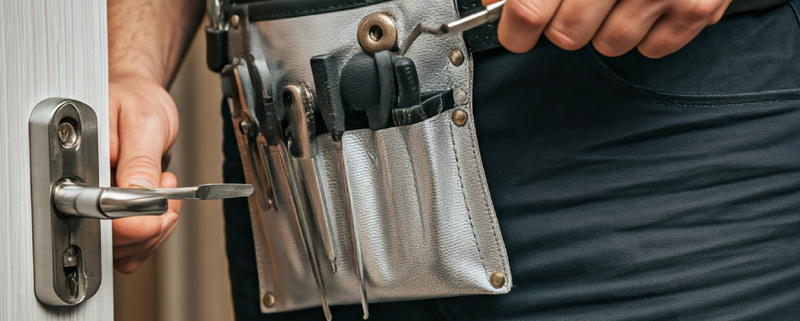How to Prevent Home Lockouts: Practical Tips for Busy Families
/in Uncategorized /by Anthony LimpertFor many of us, life in Houston moves at a fast pace-morning school drop-offs, evening soccer practices, grocery runs, and work meetings packed into a tight schedule. In the midst of this daily rush, getting locked out of your home can throw a major wrench into your plans. Fortunately, with a bit of forethought and a few simple measures, you can significantly reduce the chances of a home lockout.
In this guide, we’ll explore practical, family-friendly strategies to help ensure that everyone in the household can come and go without those frustrating, time-consuming lockouts.
1. Establish a “Key Zone” Inside Your Home
Why It Matters: When you’re juggling multiple responsibilities-managing homework schedules, prepping meals, and coordinating carpools-it’s easy to misplace keys. One of the most effective ways to prevent lockouts is to create a consistent place for your keys.
When you’re juggling multiple responsibilities-managing homework schedules, prepping meals, and coordinating carpools-it’s easy to misplace keys. One of the most effective ways to prevent lockouts is to create a consistent place for your keys.
What to Do:
- Designate a Specific Spot: Choose a highly visible area near the door you use most frequently. This could be a small hook, a decorative bowl on a side table, or a dedicated tray on a wall-mounted shelf.
- Make It a Habit: Encourage every family member to hang their keys immediately upon entering the house. Children can learn this routine early, just like hanging up their coats.
- Add a Visual Reminder: Consider placing a small sign or a colorful sticker near the designated spot as a visual cue to help everyone remember to return their keys after use.
2. Rely on Keychains and Lanyards
 Why It Matters:
Why It Matters:
Keys are small, and in a busy household, things tend to disappear under piles of mail, backpacks, or laundry. By making your keys more noticeable, you reduce the risk of losing them.
What to Do:
- Opt for Bright and Bulky Keychains: Choose a keychain that’s large, colorful, or has a distinctive shape. A neon tag or a fuzzy pom-pom can make your keys stand out.
- Attach Keys to a Lanyard: If you’re constantly on the move, wearing your keys on a lanyard around your neck or clipped to a bag strap can help ensure they’re always within reach.
3. Create Spare Keys-and Store Them Wisely
 Why It Matters:
Why It Matters:
Accidents happen. Even the most organized families may experience moments of forgetfulness. Having a spare key is a simple insurance policy.
What to Do:
- Duplicate Your House Keys: Have at least one spare key for your home’s main entrance. If several family members drive, you may need multiple copies.
- Use Lockboxes or Smart Key Safes: Rather than hiding a key under a doormat or potted plant-common places thieves know to check-invest in a lockbox or a Bluetooth-enabled key safe. Mount it somewhere discreet, and only share the combination with family members or trusted neighbors.
- Give a Spare Key to a Trusted Neighbor or Friend: Choose someone who lives nearby and is often at home. This can provide quick rescue in case of unexpected lockouts.
4. Embrace Keyless Entry Systems
 Why It Matters:
Why It Matters:
Smart locks and keyless entry systems are a game-changer for busy families. They eliminate the need for physical keys altogether, reducing the risk of lockouts significantly.
What to Do:
- Install a Smart Lock: Modern smart locks let you unlock your door using a numeric code, smartphone app, or even biometric identification (like a fingerprint).
- Set Multiple Access Codes: Assign unique PINs to each family member. If Grandma visits often, give her a temporary code. If you need a dog walker to enter, create a code that’s active only during certain hours.
- Integrate with Smart Home Systems: Connect your lock to platforms like Amazon Alexa, Google Assistant, or Apple HomeKit. Voice commands or scheduled automations can lock or unlock the door at your convenience.
5. Keep Your Locks in Good Condition
 Why It Matters:
Why It Matters:
Worn-out or poorly maintained locks can lead to keys getting stuck or breaking. This not only increases lockout risk but can also lead to costly repairs.
What to Do:
- Regular Lubrication: Apply a graphite-based lubricant or a designated lock spray every 6-12 months to keep internal components functioning smoothly.
- Check for Wear and Tear: If your key is getting harder to turn, the lock feels loose, or you notice corrosion, it’s time for a professional inspection or replacement.
- Professional Maintenance: Schedule periodic visits from a reputable locksmith to ensure your locks are secure and efficient. Investing in routine maintenance can save you from emergencies later.
6. Develop a Family Lockout Plan
 Why It Matters:
Why It Matters:
Sometimes, even the best precautions fail. When that happens, it’s vital to have a plan so no one panics, especially kids.
What to Do:
- Discuss Plan with Family Members: Make sure everyone knows what to do if they find themselves locked out-who to call, where to wait, and how to stay safe if it happens late at night.
- Ensure Contact Information is Accessible: Keep the phone number of your trusted locksmith (like First Class Locksmith in Houston) easily accessible in a phone contact list or on a family bulletin board.
- Plan for Emergencies: If older kids have their own keys, ensure they have a charged phone and know the neighbors who can help in a pinch. Consider leaving a small emergency fund with a neighbor or friend to cover unexpected locksmith costs if you’re away.
7. Synchronize Schedules and Routines
 Why It Matters:
Why It Matters:
Lockouts often happen when family members aren’t on the same page-maybe Mom thought Dad had the keys, while Dad assumed their teenage son would be home to open the door.
What to Do:
- Share Calendars: Utilize a shared family calendar, whether it’s a physical one on the fridge or a digital app, to keep track of who leaves first in the morning or who returns last at night.
- Clarify Responsibilities: If one person consistently leaves first, make it their job to double-check the key situation. Another family member might handle checking that doors are locked before bedtime.
- Communicate in Real-Time: If you’re running late, shoot a text message or a quick call to let the rest of the family know, so no one ends up waiting outside.
8. Consider Installing a Secondary Access Point
 Why It Matters:
Why It Matters:
Many homes have multiple doors-front, back, or even a garage entry. If your primary entrance is compromised or keys are lost, having an alternate way in can be a lifesaver.
What to Do:
- Upgrade a Secondary Door with a Keypad Lock: Give yourself a backup plan by installing a keypad or smart lock on a side door. This ensures at least one entrance can be accessed without a physical key.
- Garage Entry System: If you have an automatic garage door opener with a keypad, memorize the code and keep it updated. This can serve as a backup entry point in emergencies.
9. Educate Your Kids on Lock Protocol
 Why It Matters:
Why It Matters:
Children can be forgetful, but teaching them about keys and lock safety early on can help prevent future lockouts.
What to Do:
- Make It Age-Appropriate: Younger kids can learn to always put keys back in the “key zone” or remember their personal door code for a smart lock. Teens can take on greater responsibility, such as carrying their own keys.
- Emphasize Safety: Ensure kids understand the importance of never hiding keys outside in obvious places or sharing access codes with strangers.
10. Know Your Locksmith
 Why It Matters:
Why It Matters:
Even with all these preventive measures, life can throw curveballs. Having a trustworthy, local locksmith in your contact list ensures help is always at hand if a lockout occurs.
What to Do:
- Research Reputable Locksmiths: Look for licensed, insured professionals with positive reviews and a strong community presence.
- Keep the Number Handy: Store the locksmith’s number in your phone and write it on a family emergency contact list.
- Ask About Emergency Services: Confirm that your locksmith provides 24/7 emergency help, so you’re never left stranded if a lockout happens outside regular business hours.
Conclusion: Being Prepared Brings Peace of Mind
Lockouts can disrupt your plans and cost you time, but they don’t have to be inevitable. By creating consistent routines, investing in the right tools and technology, and preparing for the unexpected, you can dramatically reduce the risk of finding yourself and your family locked out.
Remember, preventing lockouts isn’t just about keys and locks-it’s about streamlining your daily routine and ensuring everyone in your household knows what to do. With these practical tips, busy Houston families can stay in control and enjoy the confidence of easy, stress-free access to their homes.
If you ever need professional advice on preventing lockouts or require emergency locksmith assistance, don’t hesitate to reach out to First Class Locksmith. We’re here to help you keep your home accessible, secure, and ready for whatever the day brings.





